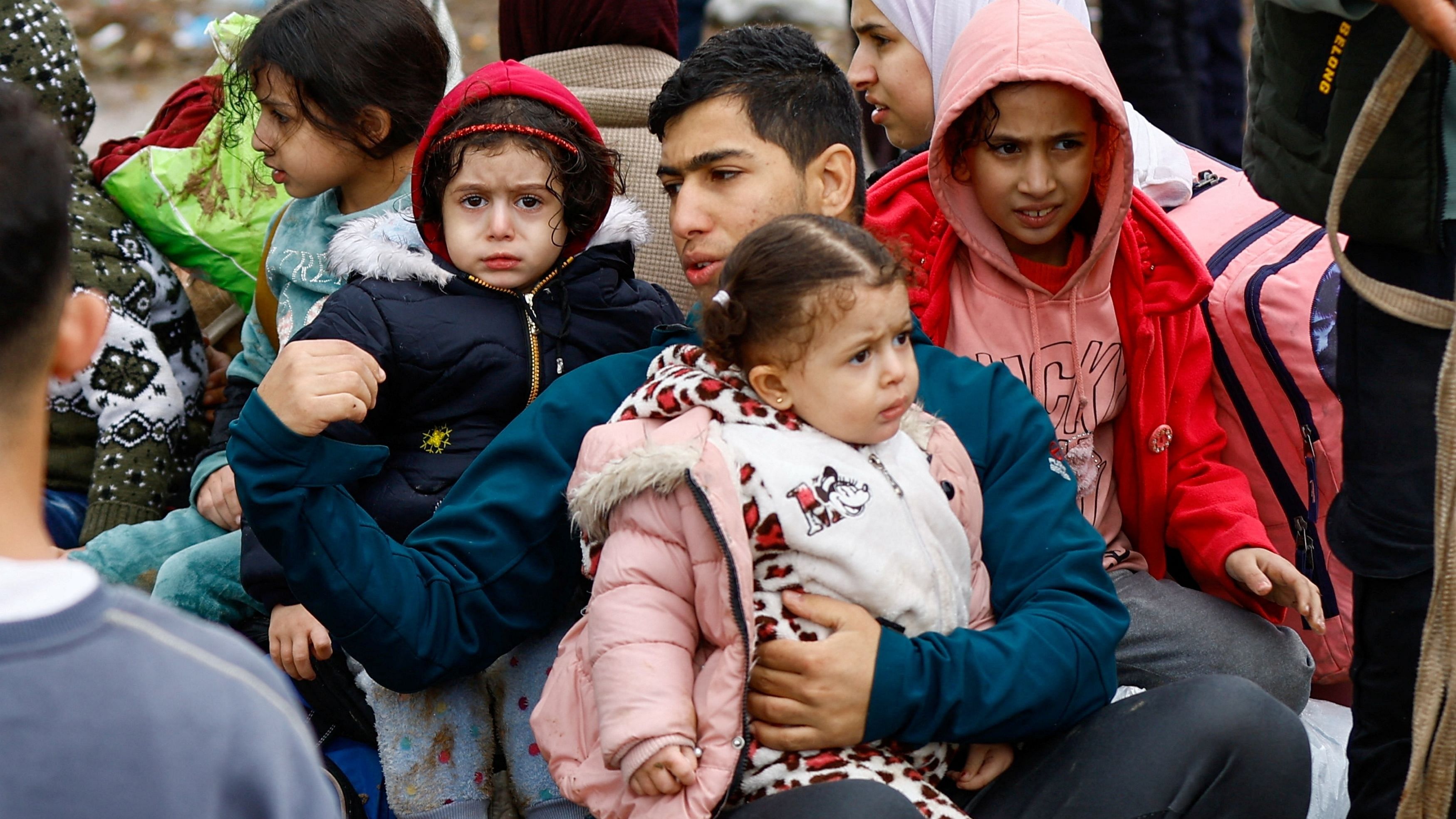
A man sits with children, as Palestinians fleeing north Gaza move southward during a temporary truce between Israel and Hamas, near Gaza City, November 27, 2023.
Credit: Reuters Photo
Israel and Hamas were at odds over the hostages and prisoners set to be released on Monday, the final day of a four-day cease-fire, putting their truce on shaky ground and raising questions about whether the pause could be extended.
Israel and Hamas each signaled a willingness over the weekend to prolong their truce if it allowed for more hostages and Palestinian detainees to be freed. But both sides have taken issue with the names presented by the other for the final day of exchanges under the deal, according to a person familiar with the negotiations, who said that officials from Qatar, the lead mediator, were trying to address the differences.
"The Qataris are working with both sides to resolve it and avoid delays," said the person, who spoke on condition of anonymity because of the sensitivity of the talks. The person added that discussions over an extension of the truce beyond Tuesday morning, when it is set to expire, "are ongoing."
It wasn't immediately clear what the two sides' differences were over Monday's lists. Hamas did not comment, and the office of Israel's prime minister, Benjamin Netanyahu, said only that "discussions are being held" over the list of names it had received overnight. Saturday's exchange of hostages for prisoners was also delayed but ultimately went ahead.
The agreement reached last week calls for Hamas to release 50 Israeli women and children who were taken hostage in the group's Oct. 7 attacks on Israel, in exchange for the release of 150 Palestinian women and detainees under 19 held in Israeli jails, as well as for more humanitarian aid to enter the Gaza Strip.
So far, Hamas has released 39 Israeli hostages under the deal and Israeli has freed 117 Palestinian prisoners. Another 19 hostages in Gaza -- 17 Thais, one Filipino and one Russian-Israeli dual citizen -- have been released since Friday through separate negotiations.
Israel has said that it is prepared to grant another day's pause for every 10 hostages Hamas releases beyond the 50 outlined in the agreement. But Qatar has indicated that one potential challenge in extending the agreement could be whether Hamas can locate more of the hostages, some of whom are being held in different parts of Gaza by other armed groups, including the Palestinian Islamic Jihad.
The cease-fire deal initially included the release of 50 women and children because that was the number Hamas had been able to locate, the prime minister of Qatar, Sheikh Mohammed bin Abdulrahman al-Thani, told the Financial Times in an interview published on Sunday.
More than 40 women and children are being held hostage by groups other than Hamas, al-Thani said, adding that Israel was willing to extend the cease-fire if "there's proof" that Hamas has more women and children to release.
President Joe Biden, who has been in contact with the leaders of Qatar, Egypt and Israel, said on Sunday that he was hoping the cease-fire will continue for as long as possible.
"Critically needed aid is going in and hostages are coming out," Biden said. "And this deal is structured so that it can be extended to keep building on these results."
China added its support for extending the truce, with the Foreign Ministry's spokesperson, Wang Wenbin, saying on Monday that "small steps toward peace should be encouraged."
The pause has marked the longest break in fighting in the Gaza Strip since Oct. 7, when gunmen from Hamas and other militant groups launched a deadly attack on southern Israel, killing about 1,200 people and taking about 240 others hostage, according to Israeli officials.
But Netanyahu, while expressing openness to an extension of the truce, has made clear that Israel would resume fighting after it ends in order to "eliminate" Hamas.